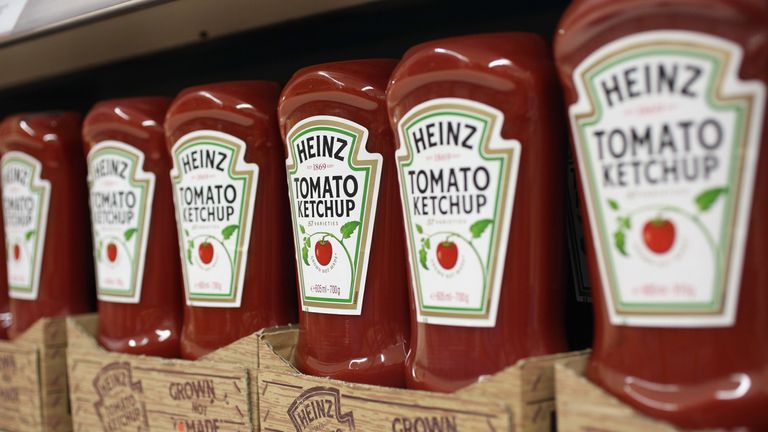US foods giant Kraft Heinz has said it will invest £140m into a processing facility on the outskirts of Wigan, calling it one of the largest investments in UK manufacturing since Brexit.
The expansion of the existing Kitt Green plant, already Europe’s largest food manufacturing site, would see the firm’s ketchup, mayonnaise, and salad cream brands produced in Britain for the first time in more than two decades.
Production of the sauces ended in the UK in 1999.
The move, which is still under review at the company’s US headquarters, would create 50 full-time jobs at the factory, which makes 1.3 billion cans of food a year.
Heinz’s investment will be directed towards updating manufacturing equipment and technology at the plant, the company said.
Advertisement“The Kraft Heinz investment is a vote of confidence in the UK economy from a major US firm and a boost that will mean jobs and growth for the local economy,” UK Minister for Investment Gerry Grimstone said in a statement.
The plans mark Kraft Heinz’s largest investment in an existing manufacturing site outside the US in over two decades.
More from Business COVID-19: Heathrow opens dedicated facility for red list passengers at Terminal 3 House prices soar 10.9% to seven-year high in ‘race for space’ UK growth forecast upgraded but pandemic economic ‘scar’ will be worst of all G7 nations, says OECD COVID-19: Customers are desperate to dine, but restaurants and pubs are facing a recruitment crisis Events group Hyve in talks with Carlyle about £250m PIPE dream Loyalty penalty ban to save insurance customers £4.2bn – but could hit cut-price dealsThe Chicago-based company has been lifted by the pandemic, as more people eat at home due to lockdowns. In April, Kraft Heinz beat first-quarter revenue and profit estimates as consumables continued their year-long surge.
Prior to the pandemic in 2019, the company saw its shares plummet by more than a quarter after posting a huge loss and revealing it was the focus of a federal investigation.
The loss reflected changes in consumer trends away from processed foods to healthier alternatives, the company acknowledged, which clashed directly with some of the firm’s most well-known products, such as Jell-O, Kool-Aid and Oscar Mayer hot dogs.

